Asia's moment of peace waits for Japan
Updated: 2015-01-12 08:17
By Cai Hong(China Daily)
|
||||||||
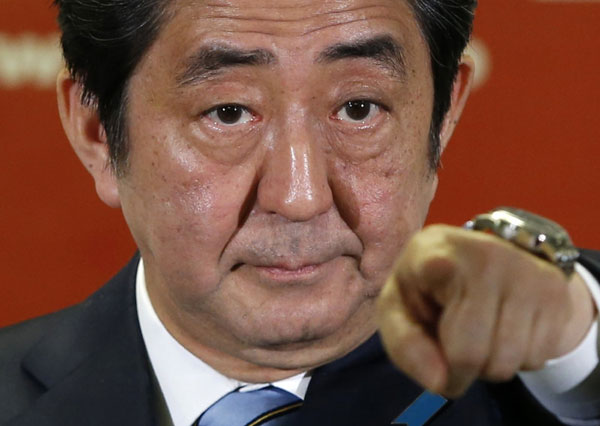 |
|
Japan's Prime Minister and the leader of the ruling Liberal Democratic Party (LDP), Shinzo Abe, points to a reporter during a news conference following a victory in the lower house elections by his ruling coalition, at the LDP headquarters in Tokyo, in this December 15, 2014 file photo. [Photo/Agencies] |
On June 4, 2004, Gerhard Schroder became the first German chancellor to stand alongside the leaders of Germany's wartime enemies in France, marking the 60th anniversary of the Normandy landings, which were a prelude to the end for the Third Reich.
"Hugely symbolic," Schroder, who accepted the invitation from then-French President Jacques Chirac, said of his attendance in France. "It means World War II is finally over."
Such a hugely symbolic moment has yet to occur in Asia.
War anniversaries are still a sore point in East Asia. Media in Japan are foreseeing this year as a difficult one for the country, as it marks the 70th anniversary of the end of WWII on Aug 15, when Japan surrendered unconditionally to the Allied Powers in 1945. Unlike Europe, Asia's former enemies have never come together to commemorate the end of the war.
This year is also the 50th anniversary of normalization of diplomatic relations between Japan and South Korea. Although both entered office more than two years ago, Japanese Prime Minister Shinzo Abe has not been able to have a formal summit meeting with South Korean President Park Geun-hye, because of the Abe administration's claims that the Imperial Japanese Army was not involved in coercing women into sexual slavery.
In his Jan 1 remarks, Japan's Emperor Akihito asked the nation to learn from the WWII as it considers its future. He recommended starting with the Manchurian Incident of 1931.
This was when the Japanese troops stationed in Northeast China - known as Manchuria back then - detonated a bomb on the rails of the South Manchuria Railway and used it as an excuse to attack Chinese troops on Sept 18, 1931, heralding the beginning of Japan's invasion of China.
Will the 81-year-old Emperor's call for reflection on the war have the ear of his "subjects"?
- Inspection teams to cover all of military in anti-corruption drive
- Tornado, heavy rain batters Central China's Hunan
- Beijing's five-year plan: Cut population, boost infrastructure
- Palace Museum discovers relics buried for over 600 years
- Disney promises ‘safe, pleasing service of high quality’
- Couple detained for selling their two sons
- Rousseff: Accusations against her 'untruthful'
- Almost one-sixth of Brazil's confirmed microcephaly cases linked to Zika
- Impeachment trial against Rousseff recommended to senate
- With nomination secured, Trump to aim all guns at Hillary Clinton
- Obama sips Flint water, urges children be tested for lead
- Massive protests against Abe mark Japan's Constitution Memorial Day
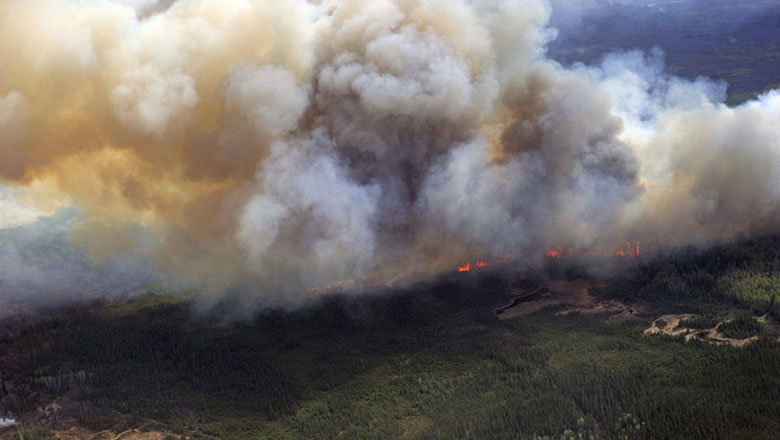
 Raging wildfire spreads to more areas in west Canada
Raging wildfire spreads to more areas in west Canada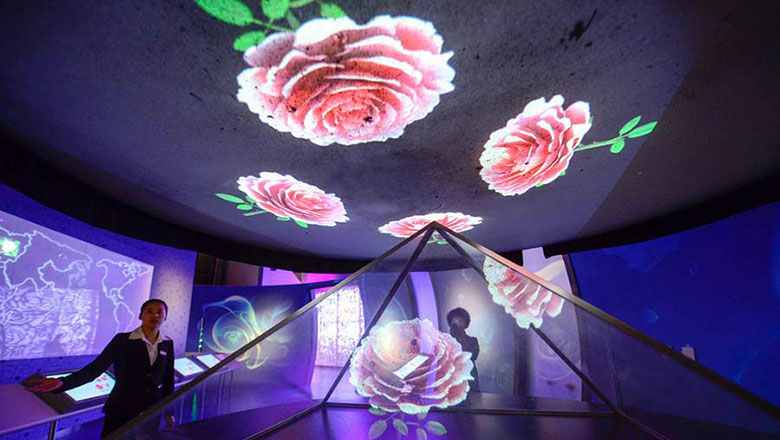
 World's first rose museum to open in Beijing
World's first rose museum to open in Beijing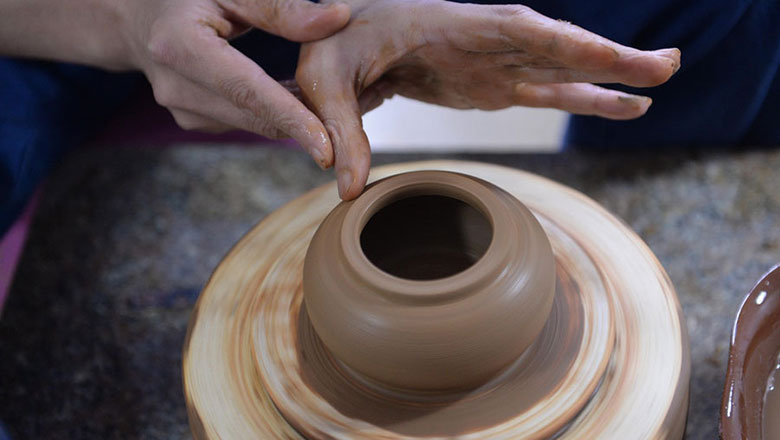
 Teapot craftsman makes innovation, passes down techniques
Teapot craftsman makes innovation, passes down techniques
 Top 8 iOS apps recommend for mothers
Top 8 iOS apps recommend for mothers
 Five things you may not know about the Start of Summer
Five things you may not know about the Start of Summer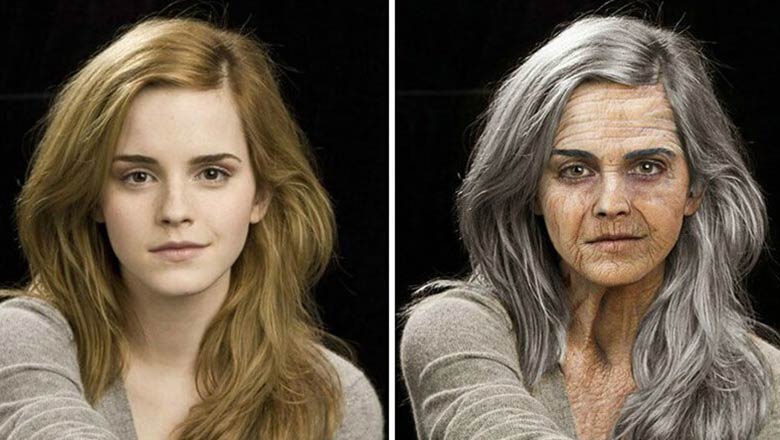
 Art imagines celebrities as seniors
Art imagines celebrities as seniors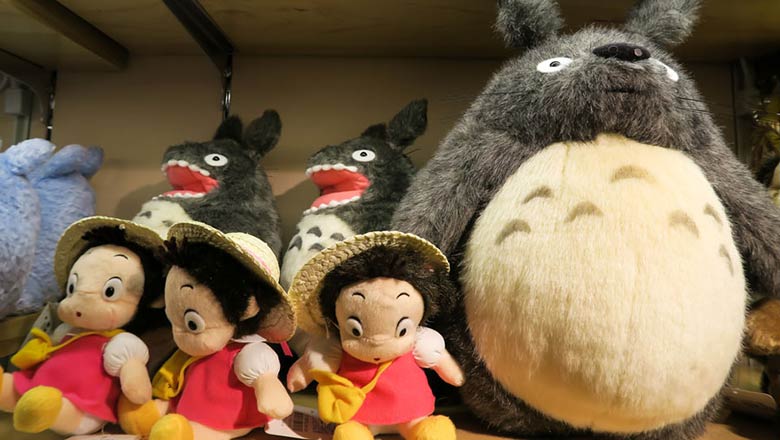
 Japanese animator Miyazaki's shop a big hit in Shanghai
Japanese animator Miyazaki's shop a big hit in Shanghai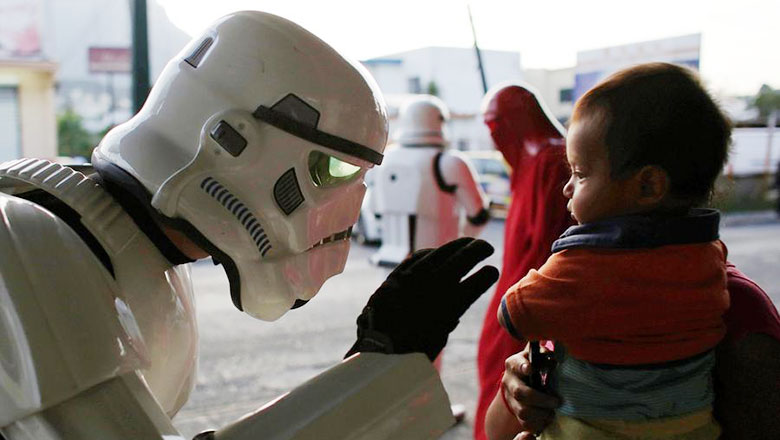
 Star Wars Day celebrated around world
Star Wars Day celebrated around world
Most Viewed
Editor's Picks

|

|

|

|

|

|
Today's Top News
Liang avoids jail in shooting death
China's finance minister addresses ratings downgrade
Duke alumni visit Chinese Embassy
Marriott unlikely to top Anbang offer for Starwood: Observers
Chinese biopharma debuts on Nasdaq
What ends Jeb Bush's White House hopes
Investigation for Nicolas's campaign
Will US-ASEAN meeting be good for region?
US Weekly

|

|








